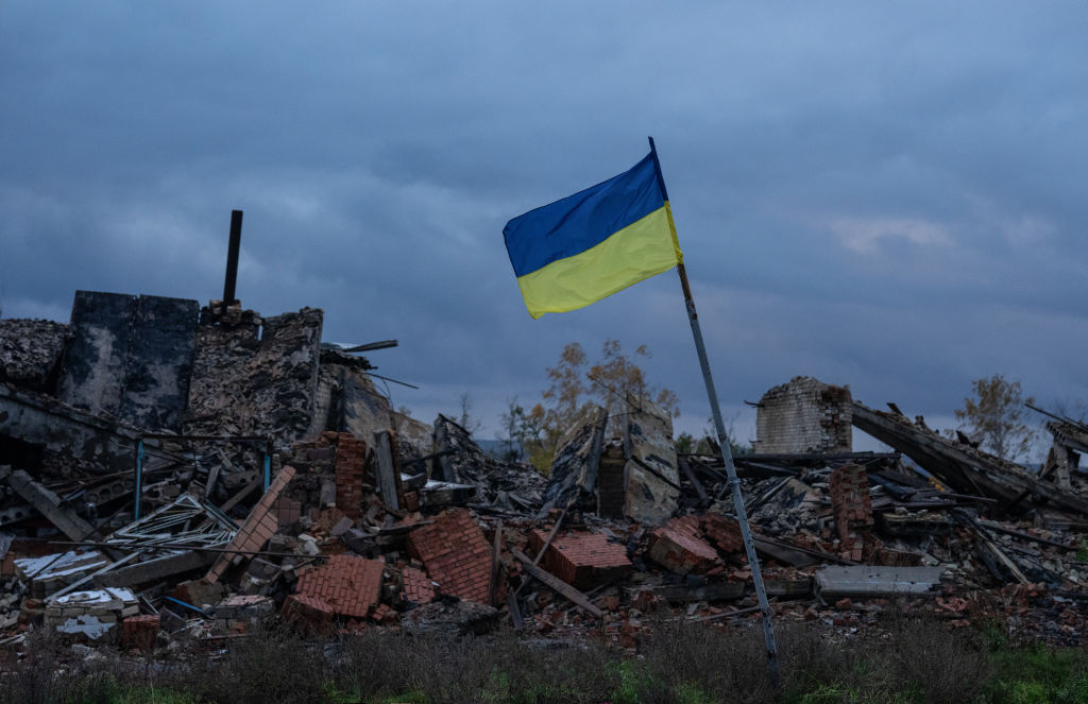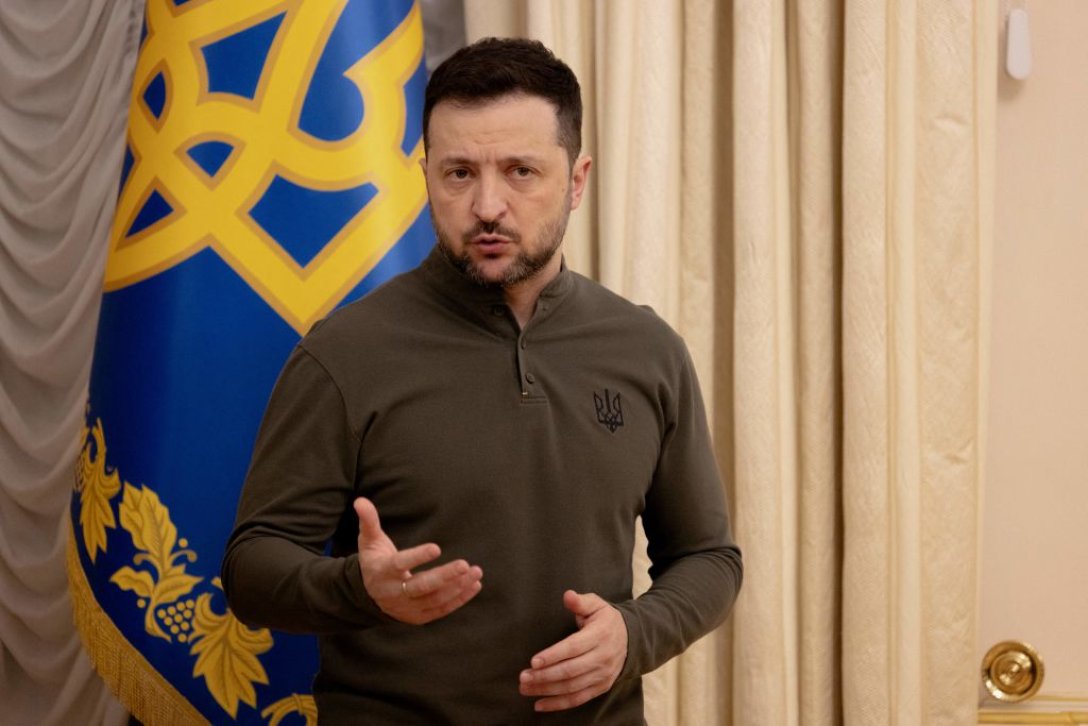Trump's vision of the world and Putin's threats: What dangers does Munich 2025 pose for Ukraine?
On the eve of the opening of the 61st Munich Security Conference—the largest international forum on this issue—the organizers traditionally released a report outlining the direction in which "the world is moving." This year, experts announced a shift toward a multipolar world. This definition, at the intersection of two concepts—multipolarity and polarization—describes, in their view, the gradual retreat of the United States from its role as a global hegemon: the number of states capable of influencing key global issues will increase, but strong polarization will significantly complicate the ability to develop common approaches to global challenges, crises, and threats.
Why the organizers of the Munich Conference warn of a potential disaster for Ukraine
Overall, the authors of the "Munich Report" are convinced that Donald Trump's victory in the U.S. presidential elections has definitively buried the foreign policy consensus established after the Cold War regarding Washington's leading role in maintaining the global order. Experts emphasize that the 47th president of the United States himself views the current situation as a "bad deal": the U.S. "made other countries rich," while the "wealth, power, and confidence" of the United States "have disappeared over the horizon."

Furthermore, the report discusses the special place of U.S. competition with China. In particular, it notes that continuing the trade war with the PRC will, among other things, "significantly complicate coordination between the United States and European states." Moreover, a shift in the White House's foreign policy toward an "anti-China" stance could lead to the Trump administration abandoning its historical role as a guarantor of Europe's security. "In that case, Washington will shift the costs of protecting the continent onto its European allies. However, given the slow pace of Europe's rearmament and its dependence on the U.S., such a scenario could create a security vacuum, and the consequences for Ukraine could be catastrophic," the report states.
The document also mentions that Russia views Ukraine and other post-Soviet states as its sphere of influence, which "resembles a new imperialist 'European concert' (the world order after the Napoleonic Wars, better known as the Vienna System of International Relations—ed.), rather than an inclusive multipolar world order."
Currently, the report notes, Russia has the opportunity to conclude the war it initiated against Ukraine on favorable terms for itself, "if Kyiv's allies seek to end hostilities at any cost." Thus, experts believe that the Russian Federation could retain control over the occupied territories, prevent Ukraine from joining NATO, and secure any other tangible security guarantees. At the same time, the authors of the report, constantly reminding that Trump's administration plan for a peaceful resolution remains unclear, summarize that if Washington takes a harder stance toward Russia than expected, "the future for the latter may look quite bleak."
It is worth noting that the organizers of the current Munich Conference reported the participation of more than 60 leaders of states and governments, as well as around 150 ministers and heads of international organizations. The Ukrainian delegation will be led by President Volodymyr Zelensky, while the American delegation will be headed by Vice President J.D. Vance. It is already known that they will hold a meeting in the corridors of the Munich Conference. Russia, as in previous years following the start of the full-scale invasion of Ukraine, has not been invited to the event. Meanwhile, according to U.S. Secretary of State Mark Rubio, the Russian-Ukrainian war will be a key topic at the Munich Security Conference (MSC) 2025.
What the Munich "swallows" from the past indicate
It is worth noting that during the Munich Security Conference back in 2007, Vladimir Putin was the first to declare that the post-Cold War world order had effectively collapsed. Some Western analysts, commenting on Putin's Munich speech, remarked that the Russian president's address was so aggressive toward the U.S. and NATO that sometimes he lacked the famous shoe that former Soviet leader Nikita Khrushchev once banged on the podium of the U.N. However, in fact, no one in the West took the Kremlin chief's threatening messages seriously at that time.
It is particularly revealing that in February 2022, just a week before Russia's full-scale invasion of Ukraine, the then U.S. Vice President Kamala Harris met with President Volodymyr Zelensky in the corridors of the Munich Security Conference. According to Time, Zelensky urged her to impose preemptive sanctions against Moscow and send weapons to Kyiv, "arguing that this would force Putin to reconsider his decision to invade." "If an attack is inevitable, the U.S. should send weapons to Ukraine, including anti-aircraft systems, fighter jets, and heavy artillery," Zelensky requested. However, according to those present at the meeting, Ms. Harris rejected both proposals, allegedly stating that the U.S. could not impose preemptive sanctions, as punishment could only come after a crime," the publication noted.

During his public address at the Munich Conference of 2022, President Zelensky, among other things, stated: "For giving up the third-largest nuclear potential in the world, Ukraine received security guarantees. We do not have that weapon. We also do not have security. There is also a part of our territory that is larger in area than Switzerland, the Netherlands, or Belgium. And most importantly, we do not have millions of our citizens. Since 2014, Ukraine has tried three times to convene consultations of the states—guarantors of the Budapest Memorandum. Three times—unsuccessfully. Today, Ukraine will do this for the fourth time. As president—I do this for the first time. But both Ukraine and I are doing this for the last time. I am initiating consultations under the Budapest Memorandum. If they do not take place again, Ukraine will have the full right to consider that the Budapest Memorandum is ineffective and all the package decisions of 1994 are called into question."
Thus, even before the full-scale invasion, the authorities in Kyiv were unambiguously hinting at the need to return nuclear weapons to Ukraine. And today, on the brink of the fourth year of full-scale war, Volodymyr Zelensky continually articulates similar "nuclear" theses, emphasizing that if Ukraine is not accepted into NATO, it should be returned nuclear weapons as a security guarantee.
Why the Munich Conference is not the best place for articulating conceptual solutions
One of the key tasks for the Ukrainian delegation at the Munich Conference, according to experts, will be to convince representatives of the current U.S. administration of the unacceptability of the conditions of the so-called quick peace, "which would essentially mean betrayal of Ukrainian interests."
"It is important to separately note that alongside the dialogue between the U.S. and Ukraine, there will be a rather sharp discussion in Munich between the United States and European partners regarding the conditions for providing security guarantees for Ukraine and, in general, further assistance to Kyiv. Currently, we see a position from the U.S. that it is only seeking to end the war, while peace is guaranteed and supported only by Europe. I do not think this is the dominant opinion in Washington, but nonetheless, such a position is present in the mainstream. Therefore, in my opinion, the Americans will have very difficult negotiations with the Europeans," notes Dmitry Levus.
In general, during the current Munich Conference, the political scientist predicts that there will be a rather "complicated process" of synchronizing and specifying American and European positions, while Ukraine will advocate for itself as much as possible.
What will be an extremely important aspect of the Munich Conference for Ukraine
"Alongside the fact that the current Munich Conference is a very important platform that allows, so to speak, to synchronize clocks. Furthermore, it should be noted that this platform, firstly, is already positive for Ukraine in terms of information, because it is there that our president's meeting with U.S. Vice President J.D. Vance should take place. It is important that this happens before the face-to-face meeting of high-ranking American officials with Putin. Secondly, the positive aspect for Ukraine is that the United States has recently introduced Europe into the discourse of peace negotiations," emphasizes Oleg Lisnyy.
The Munich Security Conference-2025, the expert believes, will significantly reinforce the positive case for Ukraine regarding Europe's direct involvement in the peaceful resolution, as before, Europeans "were not even considered full participants in the process." In this sense, the United States, notes Oleg Lisnyy, is moving in a very correct direction by increasing the number of participants. Concurrently, the political scientist predicts that in the corridors of the Munich Security Conference, alongside substantive dialogue between Kyiv and Washington, "specific points of cooperation" in the peace process between Europe and the United States will also be explored. Overall, Oleg Lisnyy predicts that Munich-2025 will do a lot to define clear frameworks for future peace negotiations, particularly in forming specific demands on the